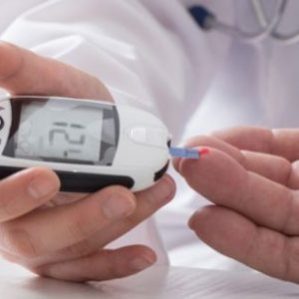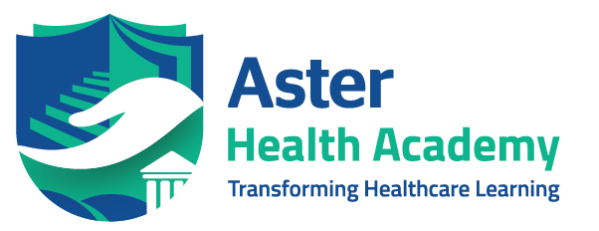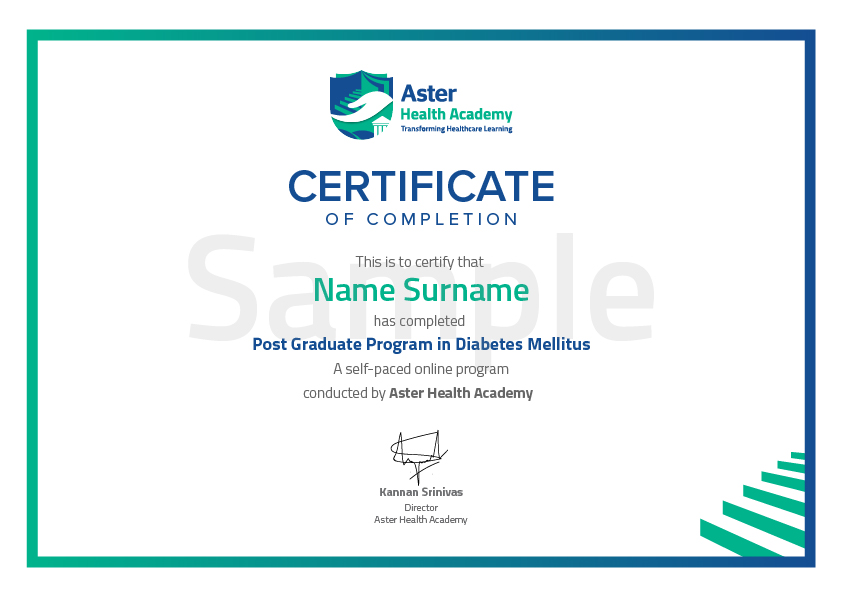
About the course:
Curriculum:
Module 1: Introduction to Diabetes
Module 2: Epidemiology of Diabetes
Module 3: Normal Anatomy and Physiology
Module 4: Biochemistry of Metabolism
Module 5: Role of Insulin in Metabolism
Module 6: Pathophysiology of Diabetes
Module 7: Clinical Manifestations of Diabetes Mellitus
Module 8: Advanced Diagnosis of Diabetes
Module 9: Pharmacotherapy for Diabetes
Module 10: Transitioning to Insulin Therapy
Module 11: Cardiovascular Disease and Risk Management
Module 12: Chronic Kidney Disease (CKD) and Risk Management
Module 13: Retinopathy
Neuropathy
Foot Care
Module 14: Obesity and Weight Management for Prevention and Treatment of Type 2 Diabetes
Sample Certificate:
FAQ:
Curriculum:
Module 1: Introduction to Diabetes
Module 2: Epidemiology of Diabetes
Module 3: Normal Anatomy and Physiology
Module 4: Biochemistry of Metabolism
Module 5: Role of Insulin in Metabolism
Module 6: Pathophysiology of Diabetes
Module 7: Clinical Manifestations of Diabetes Mellitus
Module 8: Advanced Diagnosis of Diabetes
Module 9: Pharmacotherapy for Diabetes
Module 10: Transitioning to Insulin Therapy
Module 11: Cardiovascular Disease and Risk Management
Module 12: Chronic Kidney Disease (CKD) and Risk Management
Module 13: Retinopathy
Neuropathy
Foot Care
Module 14: Obesity and Weight Management for Prevention and Treatment of Type 2 Diabetes


